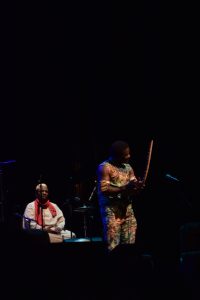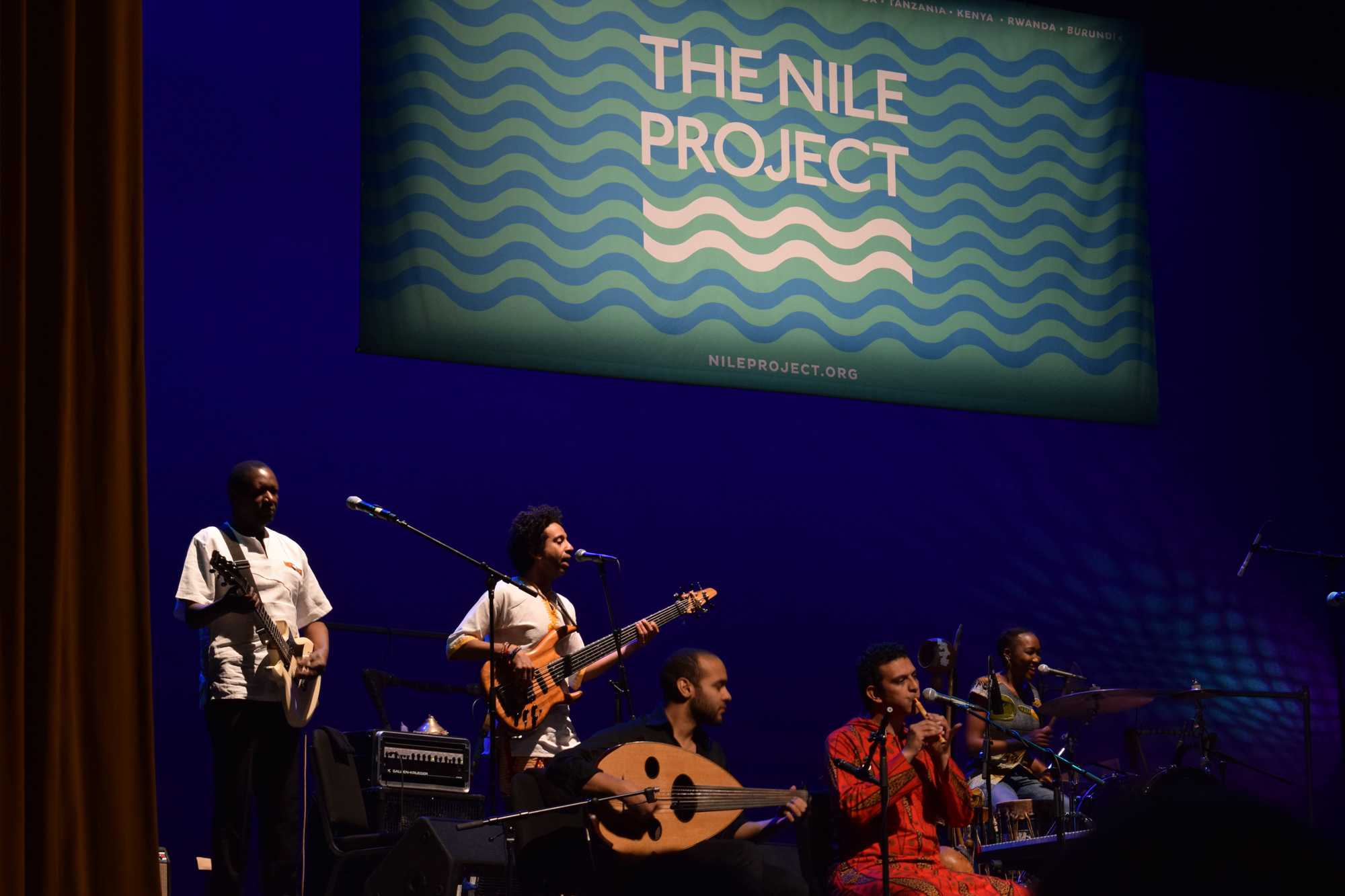The New River Conservancy, Blue Ridge Conservancy, Turchin Center for the Visual Arts’ Office of Arts and Cultural Programs and Appalachian State University will be hosting their collaboration, the Nile Project, from April 2 to 4.
The project is part of the university’s academic year performance series presented by the Office of Arts and Cultural Programs. The series showcases a variety of visiting artists from the world of music, dance and theater throughout the year. This project connects not only the arts, but also areas of global studies, political science, social justice and sustainability.
The event is sponsored by the McDonald’s of Boone and has received support from the university’s Quality Enhancement for Global Learning, as well as grant funding from South Arts, the North Carolina Arts Council, National Endowment for the Arts and the Andrew Mellon Foundation.
Denise Ringler, director of arts engagement and cultural resources, coordinated with the Nile Project team to bring them to the university, something she says is an important overarching goal of the university arts.
“We want to engage audiences in the arts not only by providing great entertainment, but also by connecting performances to the curriculum and supporting the teaching mission of the university,” Ringler said. “We are especially interested in artists and performances that can broaden our view of the world and shape our perspective on important issues, through the lens of arts.”
Ringler booked the artists of the Nile Project and helped bring the magnitude of workshops, master classes and informal discussions that will be presented throughout the week.
“When we book artists, we always attempt to engage them in more than just a single performance,” Ringler said. “This makes the experience much richer and deeper for our audiences, who are seeking a deeper level of connection with the arts. When we present a residency such as the Nile Project, it’s especially meaningful because it’s not just a single performance, but a series of activities that bring together artists and audiences.”
The events range from a New River clean up, where a small group of Nile Project musicians will visit the new river and interact with students, a panel discussion, and an exhibition viewing at the Turchin designed to showcase the headwaters and focus attention on the environmental threats which impact local watersheds.

“The message of The Nile Project is one that we can all learn from. Whether in making or playing music, sharing cultures or looking for an opportunity to conserve natural resources, we all understand the need to communicate more effectively,” Christy Chenausky, director of arts education and outreach, said.
She and her team brought the many events around campus to the university and says that is fits in App State’s message of sustainability.
“The Nile Project is finding ways to talk about water resources in a way that is both effective and creative,” Chenausky. “I would encourage anyone to come to the residency events and the performance of the Nile Project.”
The Nile Project is a performance of traditional string instruments that use heritage, style and culture to give audiences a better understanding of the countries that make up the Nile River basin. This performance will be shown at the Schaefer Center on April 4 at 7 p.m. The music is a collaboration of participating musicians that are self-taught in their own musical language and rhythms based upon their own traditional heritage.
The songs relate to nature and geography, and the lyrics come from ten different languages ranging from deep personal tracks to party anthems. The many themes of identity, regional solidarity, and intercultural relationships are intertwined in the music throughout the show. The performers themselves are a group of musicians, educators and activists who work together to build awareness about and generate new ideas to address environmental challenges in the Nile River basin.
The project was founded in August 2011 by Egyptian ethnomusicologist Mina Girgis and Ethiopian-American singer Meklit Hadero. They both wanted to cultivate the power of music by making a difference in the Nile region. They hope to bring together the 437 million citizens of 11 nations to solve environmental challenges that affect the Nile River. Not only does the project include a musical performance but also a Nile prize which is an award for students who have developed ideas to create a more sustainable Nile basin.
Faculty wants the student body to go out and attend these events and make use of all the great opportunities available. The impact of doing so will break cultural barriers and aid in App’s message of sustainability.
“All activities fall upon a the broader mission of inspiring and empowering Nile citizens to focus on the sustainability of the river,” director of marketing and public relations Anna Gaugert said. “It will also break barriers between the people living along it.”
Tickets are available now on the Schaefer Center’s website and can be bought online. Tickets are $25 for adults, $20 for faculty and staff and $10 for students. Tickets can also be purchased over the phone. The three-day residency programs are free and open to the public. Date, time and locations of these events can also be found on the Schaefer Center’s main website.
Story by: Myles Toe, A&E Reporter
Photos by: Lindsay Vaughn, Staff Photographer

